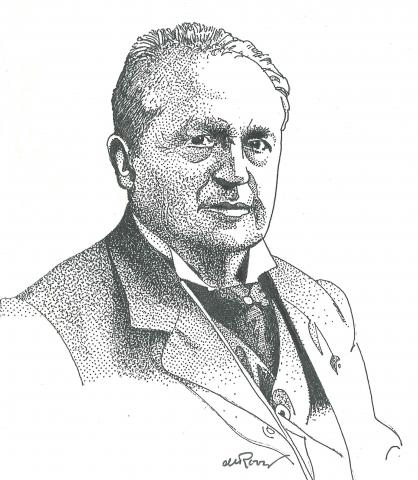A revised and updated version of
Abraham Kuyper: An Annotated Bibliography 1857-2010 by Tjitze Kuipers (2011)
You can buy a printed edition of this book on the site of the publisher.
1887
Among the meetings that took place during the Reformed Church Congress (see 1887.01) were the meetings of the twelve pragmatic sections. Participants in the congress turned in questions for discussion during these sections via coupons attached to their entry cards. This brochure publishes the questions addressed in the pragmatic meetings, along with print versions of the responses to these questions. Kuyper was chairman of sections 3, 4, 10, 11, and 12. Section 3 focused on the subject of church members throwing off the yoke of hierarchy. Section 4 addressed the question: What is our relationship to believers who have already and in different ways thrown off the yoke of hierarchy—for example, the Christian Reformed and the Ledeboerians (followers of the Rev. L.G.C. Ledeboer, 1808–1863)? Section 10 dealt with the spiritual and material issues affecting the organization of worship services once the synodical yoke was thrown off. Section 11 addressed the topic of the upcoming synodical convocation. Section 12 took “propaganda for the principle” as its subject.
Only those who had signed a printed declaration—also attached to the entry card—attesting that “he likewise considers it the duty of everyone who wants to honor the kingship of Jesus in his church to throw off the yoke of the synodical hierarchy” (cf. 1985.02, illustration on p. 744) could take part in the congress. The point of the congress was to bring reformed and dolerende officers and members of the Dutch Reformed Church together to reflect on the experiences, problems, and consequences of having rejected the synodical hierarchy and consequently to arrive at concrete solutions and plans of action.
Access to the recommendations of the pragmatic sessions was given by moderators, correspondents, or consultants (see 1887.11) only to those who had signed a declaration akin to the one above.

